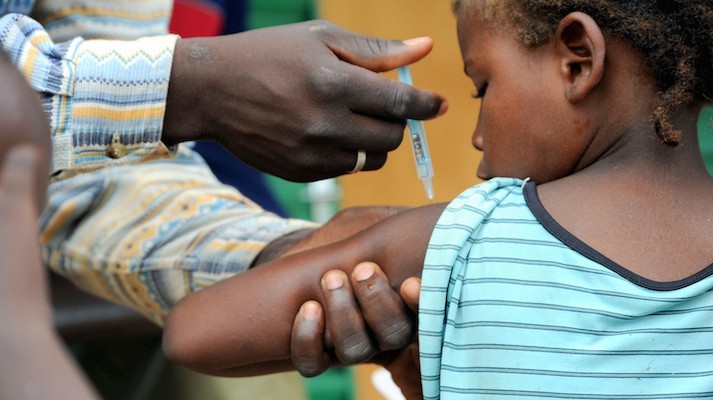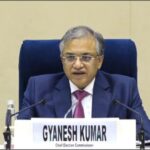…as the Senate moves to double the Basic Health Fund to 2% of the CRF
…Only 25% of vaccination budget for 2024 released, none yet for 2025
Civil society organizations (CSOs) have raised concerns over the federal government's delay in releasing funds for Nigeria's 2025 vaccination programme, warning that the blockage could derail vaccine distribution across the country and jeopardize child health outcomes.
This comes as the Senate is considering a bill to amend the National Health Act (2014) and increase the Basic Health Care Provision Fund (BHCPF) from 1% to 2% of the Consolidated Revenue Fund (CRF), aimed at improving vaccine financing, promoting primary health care and expanding insurance access for vulnerable Nigerians.
Speaking at a consultative workshop on “Why Invest in Vaccination? – From the Perspective of Civil Society Organizations (CSOs)” in Abuja on Thursday, Chika Ofor, Chief Executive Officer of the Vaccine Network for Disease Control (VNDC), said the amendment has become necessary to ensure that vaccine funding is “ring-fenced” and protected from budgetary competition with other health priorities.
“It is imperative that we have such a fund because vaccinations save economies,” Ofor said.
ALSO READ: FCTA orders strict enforcement of child vaccination rules in Abuja schools
He stressed that vaccination funding should be placed in a protected budgetary line – which cannot be removed or delayed during fiscal adjustment.
He said, “This should not be left to struggle under a service-wide vote along with so many other items. We are waking up from our slumber to begin conversations on how to secure vaccinations and other essential health items.”
Although some government officials, including the Minister of State for Health, have argued that the 1% salary increase should include general primary healthcare operations, Ofor agreed that it should not be just for vaccination, but stressed that the final policy should be clear and equitable.
“I completely agree that this cannot be just for vaccination because we are looking at the health of Nigerians. This is just a proposal that will be passed through public hearings and refined into a strong document that caters to all Nigerians,” she said.
Oppo said CSOs are working with government agencies and experts to articulate recommendations that will strengthen accountability and ensure that citizens benefit from what has been agreed.
Turning to the issue of budget implementation, Ofor expressed concern over the delay in releasing funds for vaccine procurement.
“For 2024, only 25% of the ₦137 billion vaccination budget has been paid,” she revealed. “As far as 2025 is concerned, not a single penny has been released. This is worrying because we have recently concluded an integrated vaccination campaign targeting over 100 million children. We cannot afford to have stockouts at a time when vaccines are saving lives every day.”
He pointed out that the 2023 co-financing budget was paid at the end of 2024, while the 2024 allocation was partially released.
“The 25% that was released came around June 2024,” he said. “Now, we are in October, and there is no release for 2025. The current budget cycle ends in December, and that is why CSOs are coming together to demand that vaccination funding be clearly referenced in the budget. We cannot do the same thing every year and expect different results.”
He said CSOs will continue to push for both the release of outstanding 2024 funds and timely disbursement of the 2025 allocation.
“We are praying that the government releases both 2024 and 2025 funds,” he said. “We are already targeting more than 100 million children. If the government really wants to deliver on its promises, funds must be made available.”
ALSO READ: FCTA orders strict enforcement of child vaccination rules in Abuja schools
Ofor further proposed a comprehensive approach that includes tapping 1% from the federation account to fund health in general.
“If we could get 1% out of the federation account, that would be a big pot that could sustain health care,” he said. “This would require a constitutional amendment, but if that is not possible right now, let us manage with what we have – an additional 1% from the Consolidated Revenue Fund to support vaccination and other items like nutrition and family planning.”
He emphasized that vaccines are one of the most cost-effective interventions in global health.
Senate supports amendment for permanent funding
Senator Banigo reaffirmed the National Assembly's commitment to strengthening health investments through vaccination, describing the vaccines as “crucial to Nigeria's future”.
He noted that the current 1% allocation for the Basic Health Care Provision Fund (BHCPF) has become inadequate amid rising health care costs and declining donor support, stressing the need to boost Nigeria's domestic resource mobilisation.
“The 2014 Act was a historic commitment to the financing of primary health care in Nigeria. However, the current 1% of the Consolidated Revenue Fund (CRF) is no longer sufficient to meet the growing health demands of our people,” Banigo said.
According to him, the proposed amendment to increase the allocation from 1% to 2% will strengthen primary health facilities across the country, expand insurance coverage to the poor and vulnerable and improve maternal, child and immunization outcomes.
He emphasized that vaccines will particularly benefit from increased funding, increasing coverage and distribution across the country.
He said, “This amendment is not just about numbers; it is a call to action. Health promotion funding should not be seen as a cost but as an investment in Nigeria's future.”
If passed, the revised allocation could propel the BHCPF to provide much-needed financial space for vaccine procurement and distribution to the country's struggling primary health system and reduce the country's dependence on donor financing.
Immunization is one of Nigeria's most effective public health interventions, credited with saving millions of lives annually from preventable diseases such as measles, polio and diphtheria.
Nevertheless, coverage has stagnated below 60%, weakened by funding shortfalls due to the inconsistency of government funding.
However, Senator Banigo said the Legislature has played its part by pushing the amendment bill and called on the Executive and development partners to ensure timely release of the budget and accountability in implementation.
“The challenge is no longer with the legislature – we have done our job. It is the job of the executive to ensure timely release and the job of CSOs is to advocate for transparency and effective use,” he said.
Experts demand accountability and timely release
Also speaking, Hon. Usman Mohammed, former Deputy Chairman of the House Committee on Health Services in the 8th National Assembly, described the situation as “deeply worrying”, stressing that inadequate vaccination directly puts Nigerian children at risk.
“An investment in vaccines is an investment in Nigeria's economic productivity. Every delay puts children at risk and undermines our public health security,” he said.
Mohammed urged the National Assembly to work closely with the executive to ensure the timely release, adding that “the leadership must act swiftly to prevent another cycle of outbreak of the preventable disease.”
In his remarks, Dr. Aminu Magashi, CEO of the Africa Health Budget Network (AHBN), said the delay in releasing funds weakens Nigeria's co-financing commitments and increases dependence on international donors.
“When the government fails to release its share of vaccination financing on time, it leaves development partners struggling to fill the gap,” he said. “This is not sustainable. We must promote co-financing and timely release to ensure that vaccines are available in all facilities and children with zero doses have access.”
Dr. Amina also called for greater transparency in the proposed BHCPF increase, urging lawmakers to include a clear budget line for vaccination within the 2% allocation.
“We support increasing the BHCPF by 2%, but there should be clarity on how much of that fund will go to vaccine procurement,” he said. “There should not be just a blanket mention of vaccination – there should be a dedicated provision in it.”










